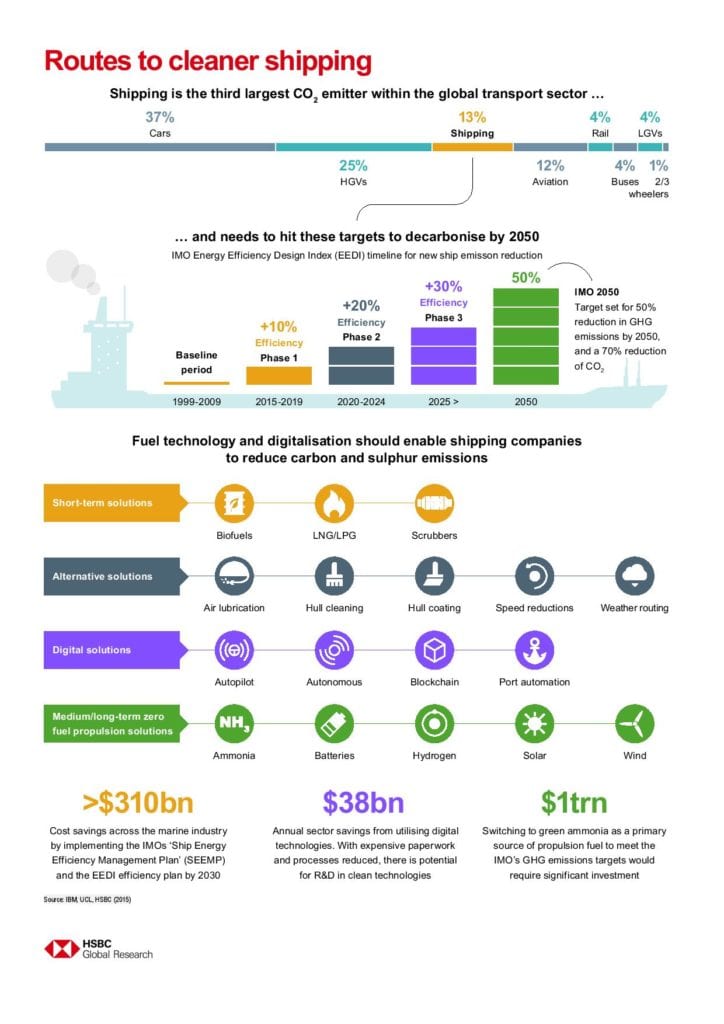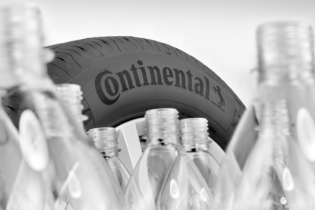Shipping accounts for 13% of the carbon dioxide emitted by transport. The industry has been set a target of halving greenhouse gas emissions by 2050, relative to 2008 levels, but on current trends, they could possibly increase by 250% instead.
*By Davey Jose Progress to reduce emissions has been slow, but regulations aimed at decarbonising the marine sector have triggered a search for alternative fuel technologies and strategies. Some 78% of the fuel used by the transport sector is oil and it produces 24% of global CO2 emissions from fossil fuel – second only to power generation. Greenhouse-gas emissions from shipping rose by 10% between 2012 and 2018 but other discharges include nitrogen oxides and pollutants such as sulphur oxides that contribute to acid rain. In the short run, adopting liquefied natural gas will help. Scrubbers can remove sulphur but they produce harmful waste. Longer term, renewable energy sources such as green hydrogen and ammonia, together with biofuels and batteries will be required to meet the 50% target. LNG is the greenest transition fuel available but it is a fossil fuel comprising 95% methane. However, as the only commercially-viable substitute, consumption will grow until cleaner alternatives become available in the mid-2030s. Plant-based biofuels can be blended with existing fuels to reduce emissions. They are the cheapest short-term option for decarbonisation, but have sustainability issues and limited supply. ‘Green’ hydrogen uses renewables but is more expensive – though its cost should fall as wind and solar costs decline. We expect to see hydrogen-powered passenger ships before 2030.But highly-flammable hydrogen requires careful storage and transportation. Ammonia fuel is a zero-emission mixture of hydrogen and nitrogen gas that is easier to liquefy and transport – but toxic and also currently produced from fossil fuels. Nevertheless, increasing green hydrogen and green ammonia production could help shipping meet its long-term emission goals. Meanwhile, fuel consumption can be reduced by fitting ships with sails (or rotating cylinders) or solar panels. But they take up deck space and depend on daylight and weather. Batteries are currently viable only for small electric vessels on short routes but the technology is advancing. Emission targets have focused renewed attention on nuclear-powered vessels. They are zero-emission, faster than fossil-fuelled ships, and can go for decades without refuelling. But disposal of spent fuel is a concern and many ports shun them. However, the simplest and cheapest strategy for reducing CO2 emissions is to conserve fuel by controlling and cutting a vessel’s speed. The drag on a ship can be reduced by cleaning the hull, giving it an anti-fouling coating, or pumping air bubbles beneath the waterline. Minimising disruption due to weather and shorter waiting at anchorages saves fuel too. But artificial intelligence and related digitisation could allow autopilots to minimise drag from winds or currents, while autonomous ports or shipping – even crewless vessels – or using blockchain to reduce paperwork can improve efficiency. Utilising multiple technologies has the potential for fuel savings exceeding 50%. *Jose is a Thematic Analyst, Disruptive Technologies, HSBC Global Research Insights








